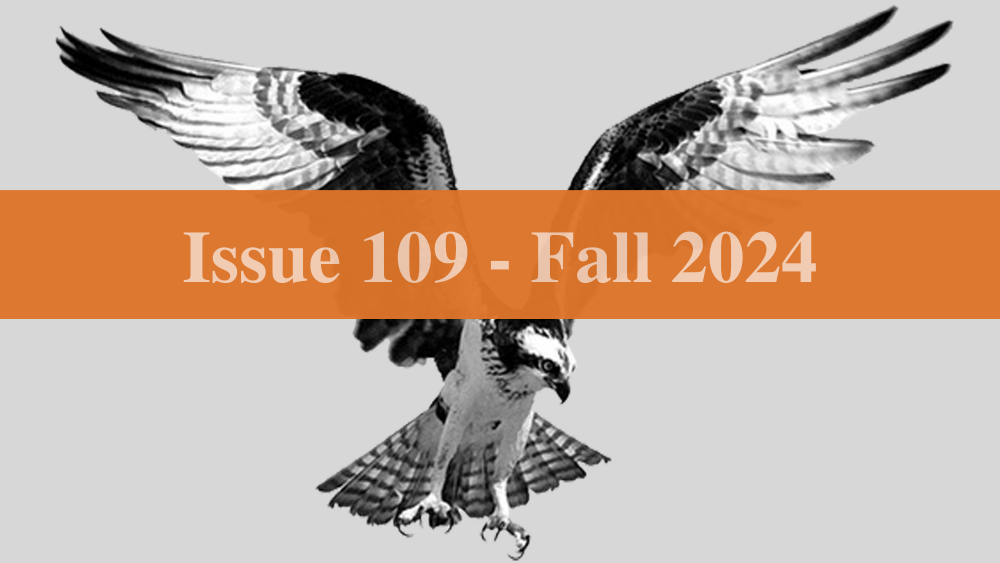Life History Diversity Emerges After Removal of Elwha River Dams
There are many reasons I decided to accept the position as editor for The Osprey. First and foremost, I enjoy writing and sharing the most recent science on salmon and steelhead. Second, I feel a responsibility to do what I can to help conserve and sustain wild salmonids for future generations through a rapidly changing world. Last, I’ve always been a reader and fan of the publication.
I can’t replace Jim Yuskavitch, the talented and long-time editor who carried The Osprey through thick and thin, the person who has shared topical news on science and conservation over the years. Nor do I expect to make any changes in the short term. Rather, I hope to merely continue to add to his foundation.
While my goal is to ultimately anchor each issue to a theme, such as dam removal or fishery management and climate change, I wanted to start off with a bit of diversity. I also wanted to acknowledge the loss of a great scientist and wild fish advocate in Jim Lichatowich, someone that I stand on the shoulders of. Jim’s story is one of true commitment and diligence, and I think the article on his career and efforts provides insight into what made him such a special person.
I also include articles on why dam removal is so important to the lower Snake River, not only for improving access to the rivers upstream, but also to the mainstem Snake and the many animals and fish that formerly relied on the wild river. In that context, I was fortunate to receive a new piece of science on the response of salmon and steelhead to dam removal in the Elwha River -- a publication that I was a co-author on. The research underscores how rapidly fish can respond and diversify to new habitats, and why dam removal is a critical conservation action
ALSO IN THIS ISSUE
• Multi-Facted Benefits of Rewilding the Snake River
• Remembering a Salmon Science and Advocate Extraordinaire
• A History of Conservation and Failure in North America
• Native Trout Policy and Implications for Steelhead
• Notes on Managing for Declines in Salmon Size, Climate, and Plankton
Last, there is a call to arms for improving the native trout policy in Washington State and a dissertation on how economics and conservation have influenced conservation success (or lack there of) in the United States of America.
As I sit here at my desk on a brisk afternoon, I’m inclined to be hopeful that wild salmon and steelhead will persevere and future generations will have the opportunity to enjoy them as I have.
That said, their future is more uncertain than ever. As noted in Fish Watch, recent science on declining body size in salmon, a rapidly changing climate, dramatic changes in plankton in the Atlantic Ocean, and the failure of a massive spending spree in the Columbia River, we must learn from our past. We must adapt. We must take bold action and apply the best science in meaningful ways.
To that end, I hope you enjoy the issue. It’s time for me to go snorkel the Elwha River and count some fish.
Hello, World!


